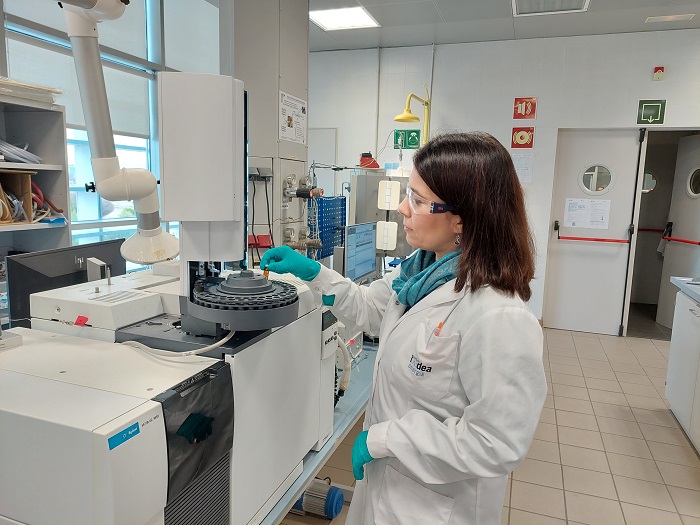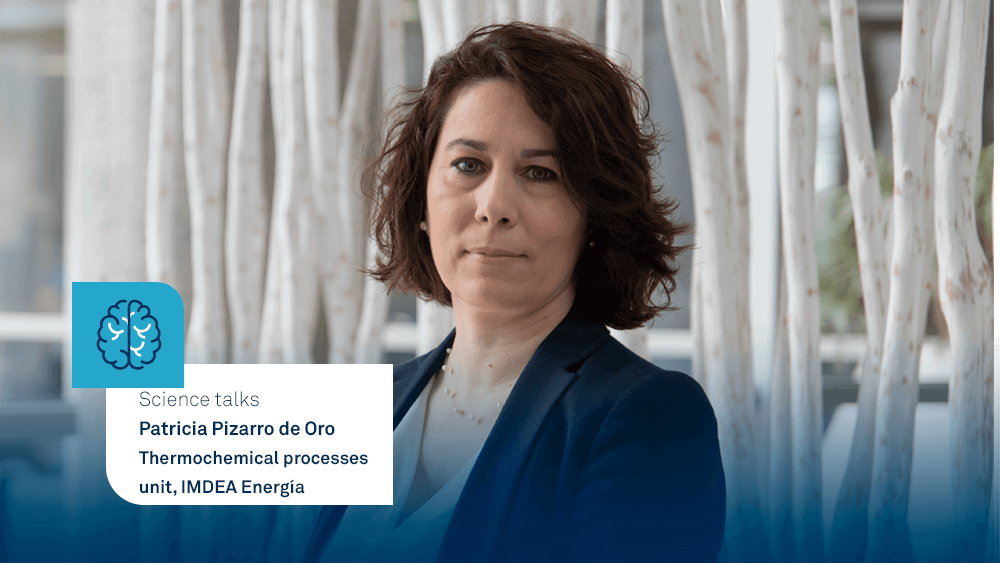"We started this research line with lignocellulosic, agricultural, and vegetable waste to produce alternative fuels for transportation said Patricia Pizarro, associate senior researcher at the UPTQ, and Chemical Engineering professor at Universidad Rey Juan Carlos.
Among other projects they have worked on is project BIO3, focused on the valorization of biowaste and aligned with the objectives of the circular economy.

When a material is subjected to pyrolysis it is decomposed at 500 ºC degrees without any oxygen, resulting in three products: a fraction of gas that can be used as fuel; a carbon solid fraction that can be given different uses, and, finally, a liquid fraction, called pyrolysis oil.
This primary pyrolysis oil does not have good properties to use as a transport fuel or to obtain commercial chemicals. But if catalysts are used in the process (catalytic pyrolysis), its quality can be greatly improved, and it is possible to obtain a product suitable for manufacturing liquid fuels, or extracting commercial chemicals (phenols, aromatics).
Patricia’s group also performs pyrolysis on end-of-life tires and plastic waste, such as those from vehicles (ELV) and Electrical and Electronic Equipment (WEEE). Depending on the composition of the initial waste, it is possible to obtain monomers to synthesize polymers (styrene, caprolactam) or hydrocarbons to formulate fuels.
"We work at the lab or proof of concept scale, since we are the previous step to demonstration or industrial facilities," Patricia says. "Our mission is to find out which operating conditions and/or catalysts are the most promising to select them and they can be scaled up afterwards. Collaboration with companies is essential here."

They also plan to carry out copyrolysis tests, mixing different types of waste (e.g. plastics with tires) to improve the properties of the oils. "Combining plastic waste with agricultural or forest waste can even achieve synergistic effects, further improving the quality of the product."
But they don't just investigate the use of organic solid waste. In a more recent research line, they study how to convert biogas into synthesis gas (CO + H2). Synthesis gas can be used as fuel or as an intermediate to produce other chemicals.
